Title: Empowering Users: Tools and Technologies for Enhancing Online Privacy
In today’s digital age, the internet is an integral part of our daily lives. From social media interactions to online shopping and banking, we rely on the internet for a multitude of activities. However, with this increased connectivity comes concerns about privacy and data security. As users, it’s essential to take proactive steps to protect our online privacy. Fortunately, there are a variety of tools and technologies available that empower users to safeguard their personal information and maintain control over their online presence.
Understanding the Importance of Online Privacy
Before delving into the tools and technologies available, it’s crucial to understand why online privacy matters. In an era where data breaches and cyber-attacks are prevalent, protecting personal information is paramount. Online privacy encompasses safeguarding sensitive data such as login credentials, financial information, browsing history, and personal communications from unauthorized access or misuse.
Moreover, online privacy is closely linked to individual autonomy and freedom of expression. When our digital activities are constantly monitored and analyzed, it can inhibit our ability to express ourselves freely and engage in activities without fear of surveillance or judgment. Therefore, prioritizing online privacy is not just about protecting personal data; it’s about preserving fundamental rights and freedoms in the digital realm.
Tools for Enhancing Online Privacy
- Virtual Private Networks (VPNs): VPNs encrypt your internet connection, making it more secure and private. By routing your internet traffic through a remote server, VPNs mask your IP address and prevent third parties from tracking your online activities. They are particularly useful when accessing public Wi-Fi networks, as they protect against potential eavesdropping and hacking attempts.
- Privacy-Focused Web Browsers: Several web browsers prioritize user privacy by blocking trackers, cookies, and advertisements. Examples include Brave, Firefox Focus, and Tor Browser. These browsers offer features like private browsing mode, which prevents your browsing history from being stored locally.
- Password Managers: Password managers help users create and store complex passwords for various online accounts securely. They encrypt passwords and store them in a centralized vault, eliminating the need to remember multiple login credentials. Additionally, some password managers offer features like password generation and automatic form filling, streamlining the login process while enhancing security.
- Encrypted Messaging Apps: Communication privacy is essential, especially in an age where messaging platforms are increasingly targeted for data collection. Encrypted messaging apps like Signal and WhatsApp use end-to-end encryption to ensure that only the sender and recipient can access the contents of their messages. This protects sensitive communications from interception or surveillance by third parties.
- Privacy-Focused Search Engines: Traditional search engines track users’ search queries and browsing habits to deliver personalized results and targeted advertisements. Privacy-focused search engines like DuckDuckGo and StartPage prioritize user privacy by not tracking or storing user data. They provide anonymous search capabilities without compromising search quality.
Embracing Privacy-Enhancing Technologies
While these tools and technologies are valuable for enhancing online privacy, it’s essential to recognize that privacy is a multifaceted issue that requires a holistic approach. Beyond adopting privacy-enhancing tools, users should also prioritize practices such as regularly updating software and operating systems, configuring privacy settings on devices and online accounts, and being mindful of the information they share online.
Moreover, advocating for stronger data protection laws and regulations can help create a more privacy-conscious digital ecosystem. By supporting initiatives that promote transparency, accountability, and user consent in data collection and processing practices, individuals can contribute to a safer and more privacy-respecting online environment.
In conclusion, empowering users to enhance their online privacy requires a combination of awareness, education, and the adoption of privacy-enhancing tools and technologies. By taking proactive steps to protect personal data and advocating for privacy rights, individuals can assert greater control over their digital lives and contribute to a more privacy-respecting internet for all.
